Literature Review: Sleep Disturbance and Alcohol Use in Veterans
VerifiedAdded on 2022/08/14
|5
|1006
|17
Literature Review
AI Summary
This literature review investigates the complex relationship between sleep disturbance and alcohol use disorder (AUD) in veterans. The review synthesizes several studies that explore the prevalence of sleep disorders, such as insomnia and sleep apnea, among veterans, linking them to factors like combat exposure, PTSD, and aggression. Several articles highlight the high incidence of sleep problems, often exacerbated by alcohol consumption as a coping mechanism. The review examines the tools used to assess sleep quality and mental health, such as the PSQI and SSI, and discusses the impact of alcohol on sleep patterns. Studies included in this review show that alcohol misuse is associated with more severe sleep disorders. The review concludes by emphasizing the challenges veterans face, including combat-related trauma and the subsequent reliance on alcohol, underscoring the need for interventions that address both sleep disorders and AUD to improve the mental and physical health of veterans.
1 out of 5
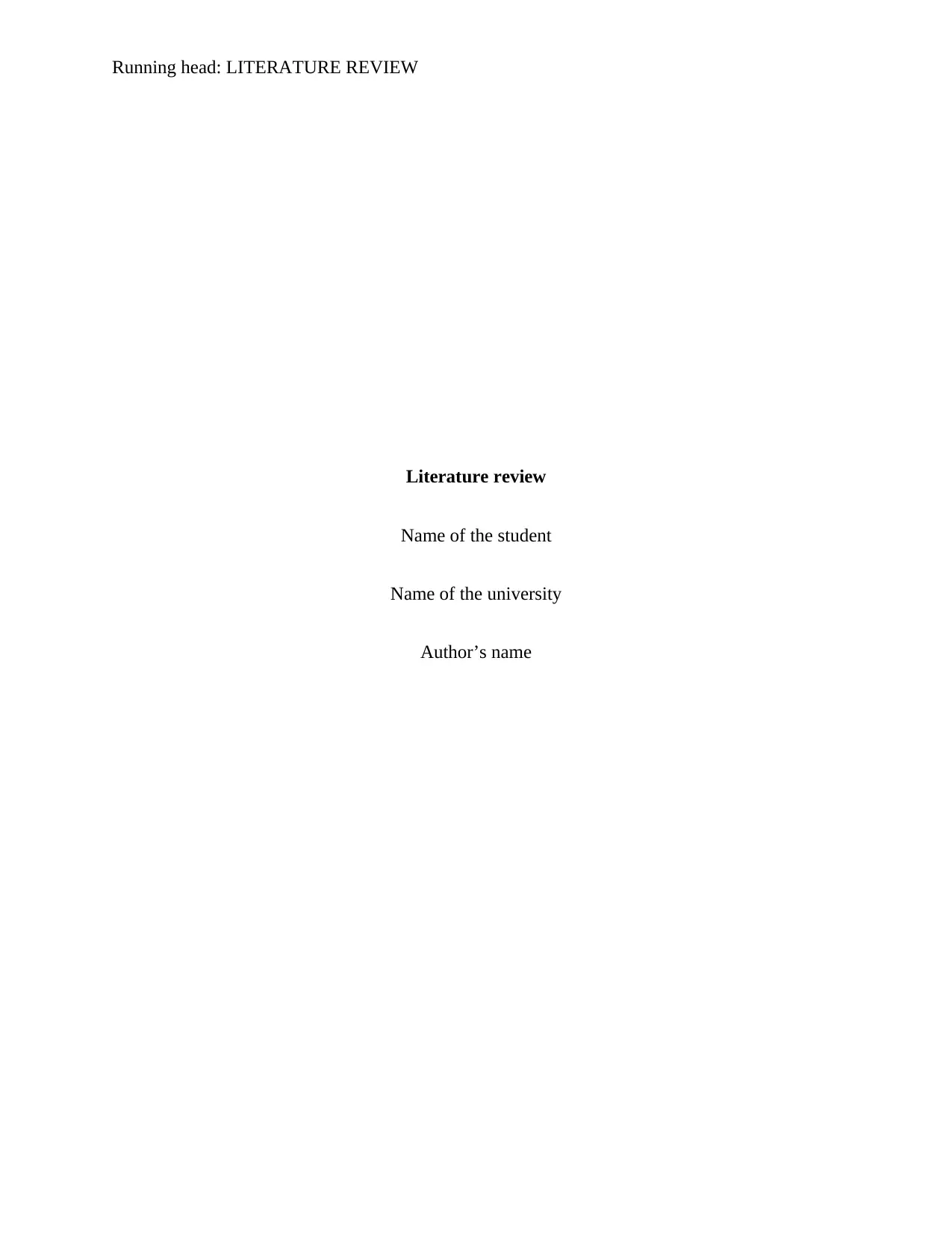
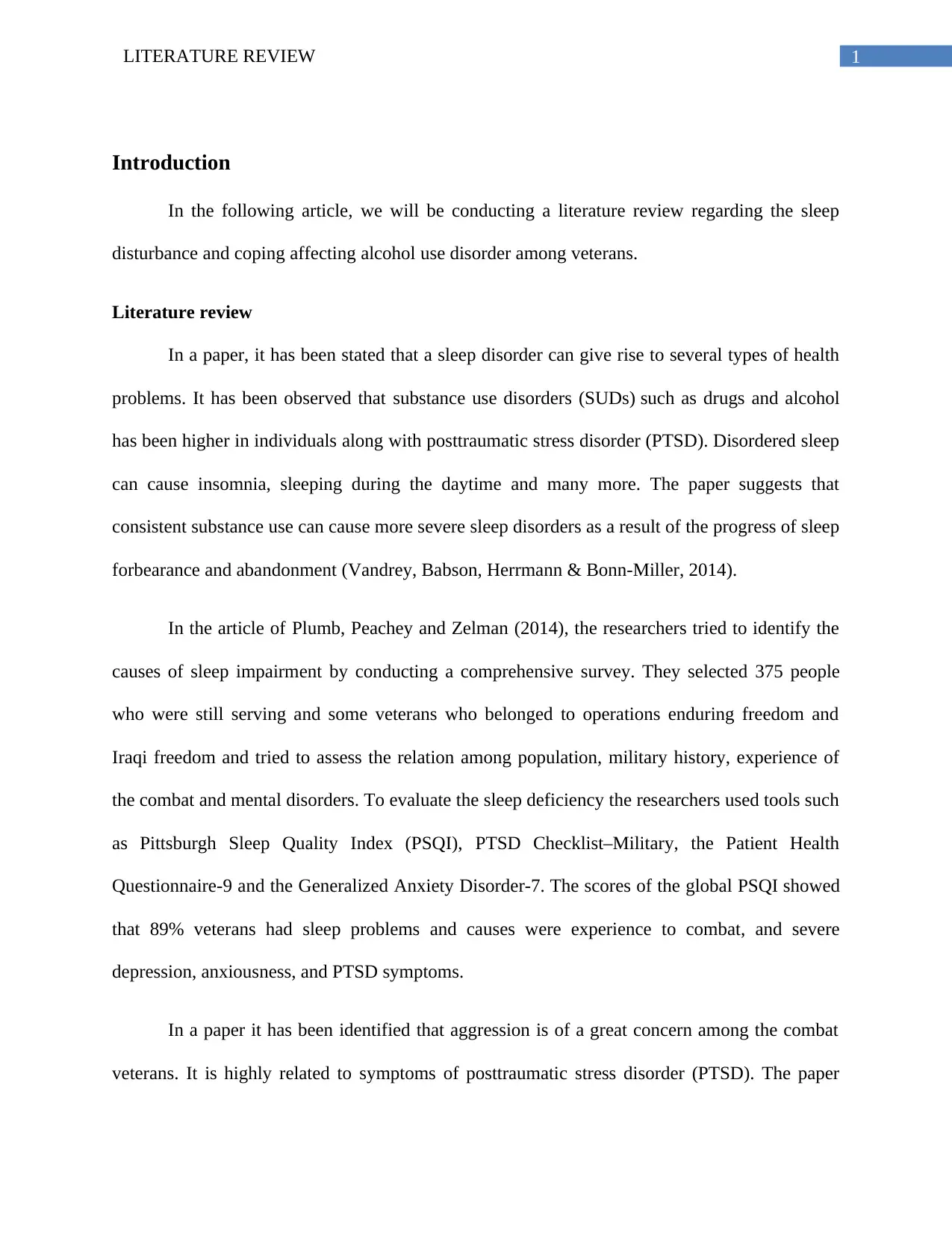
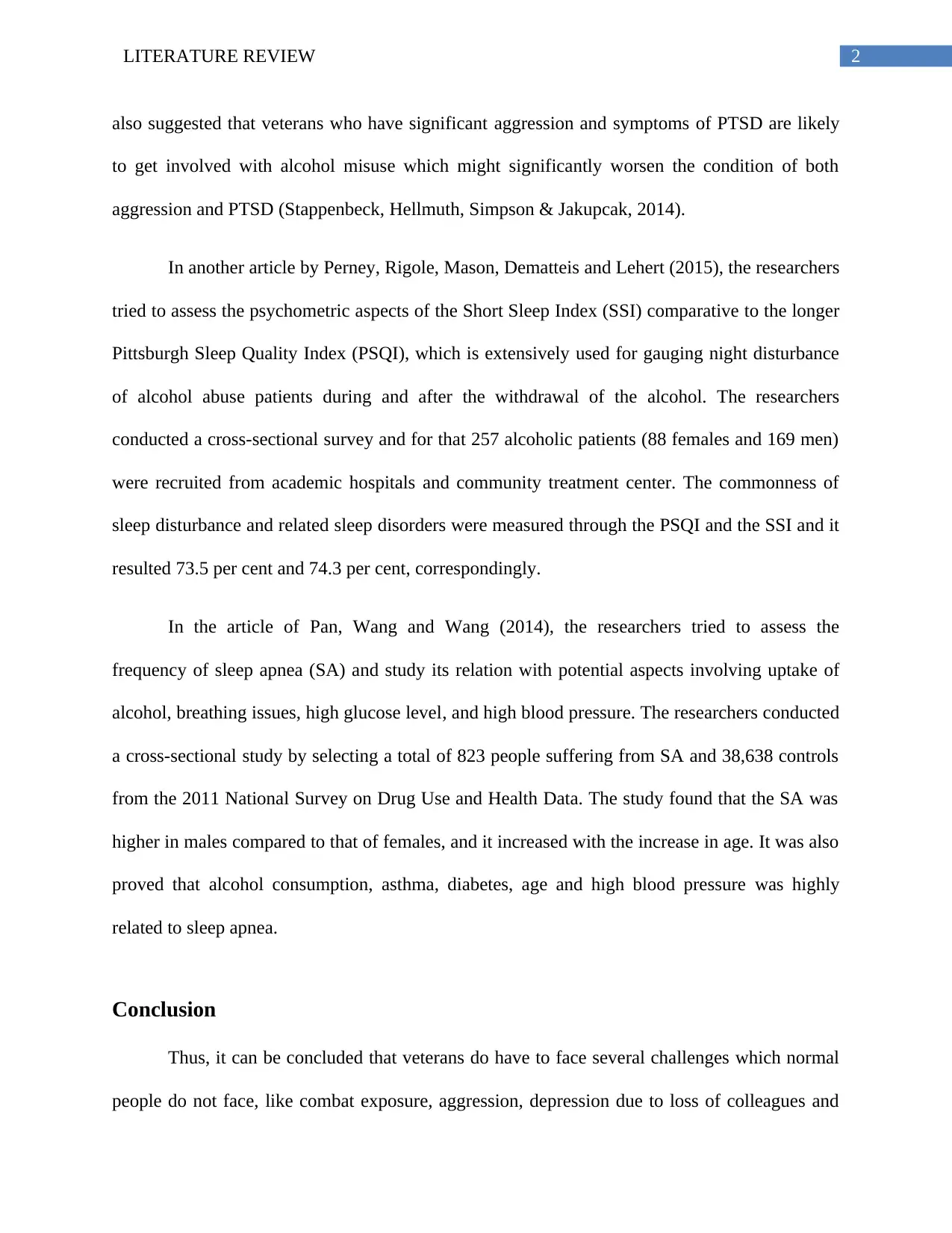

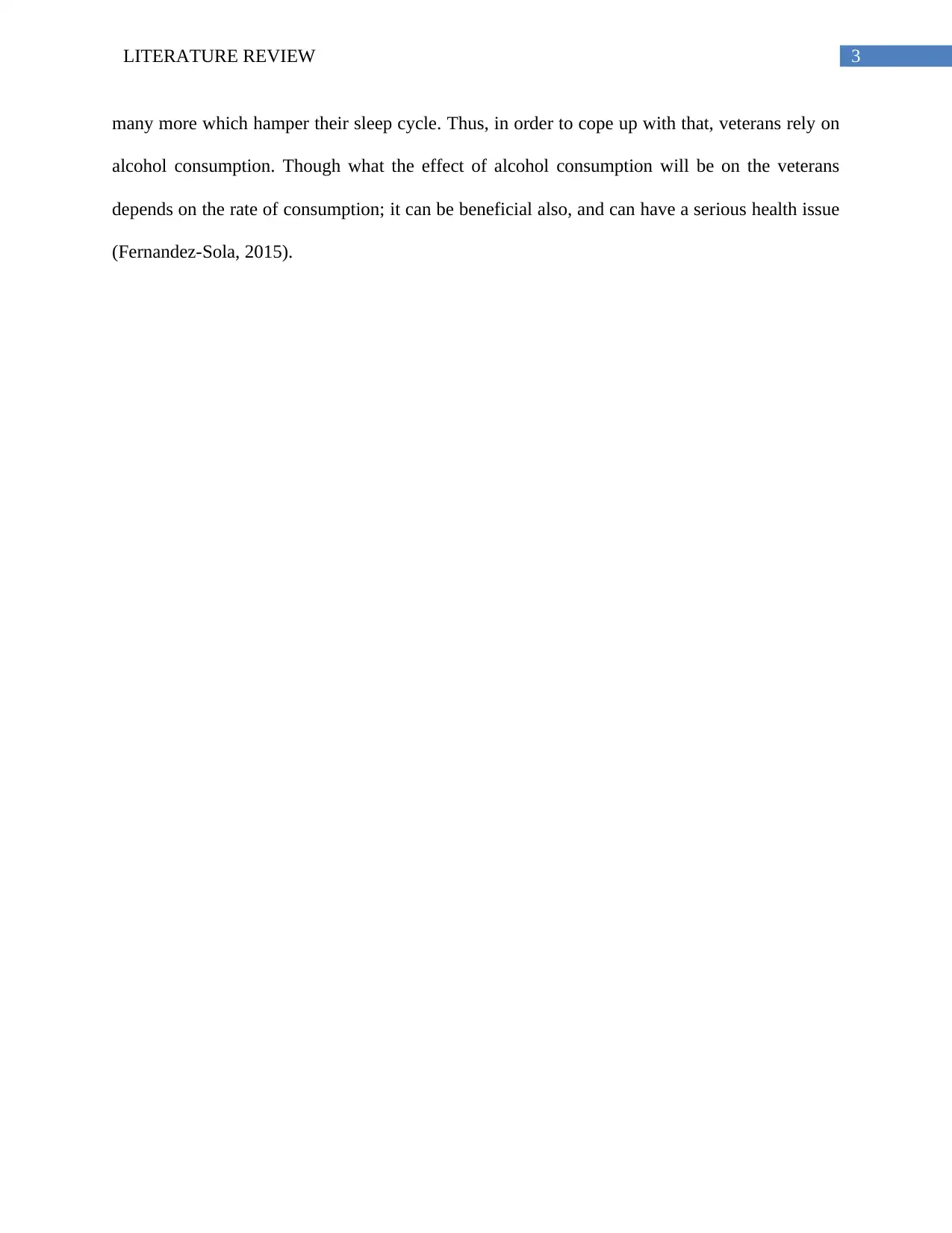
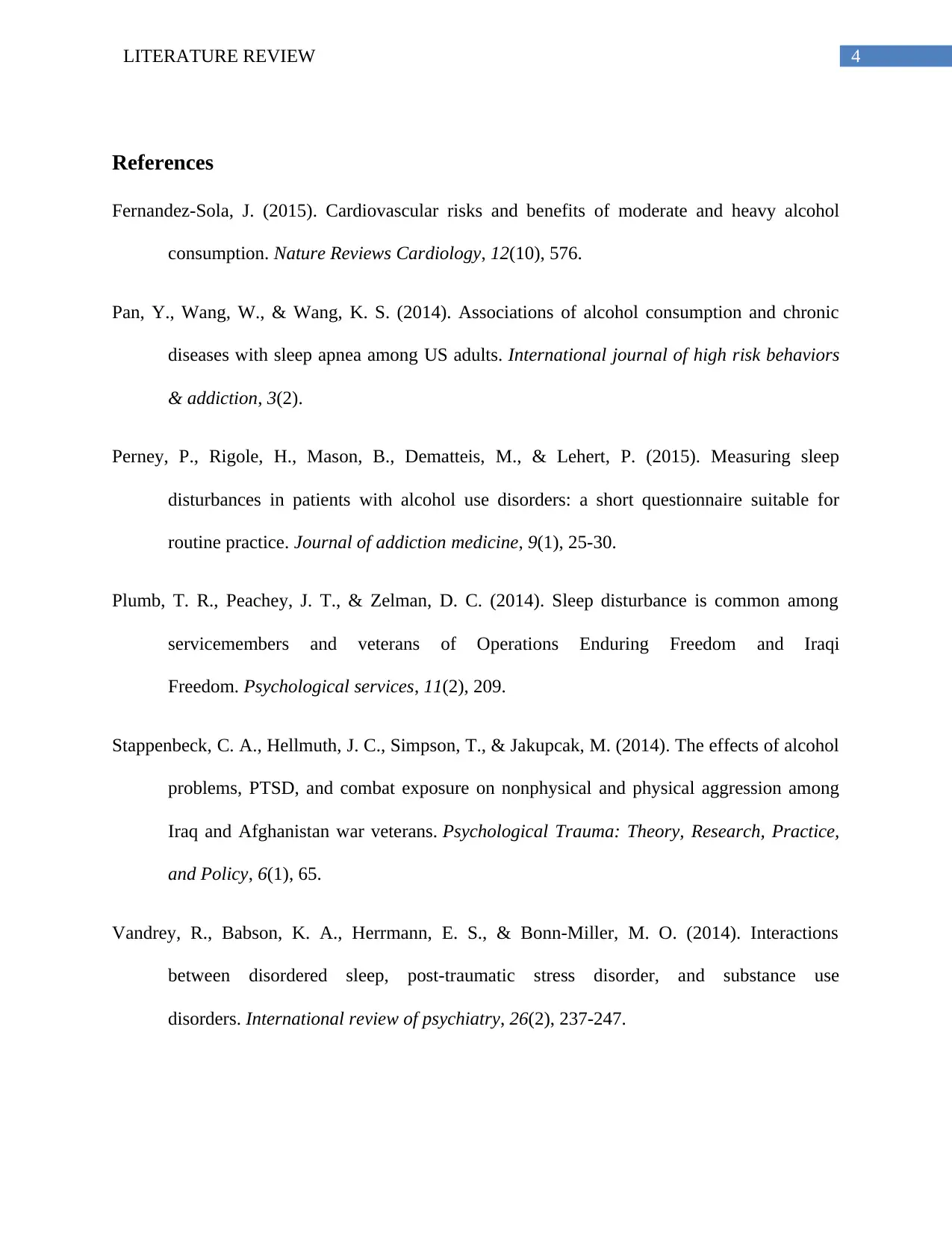

![[object Object]](/_next/static/media/star-bottom.7253800d.svg)